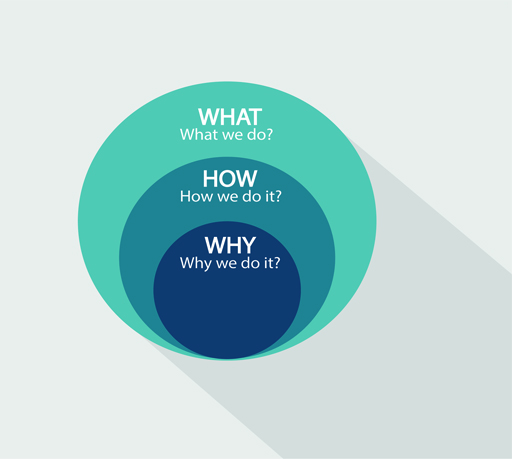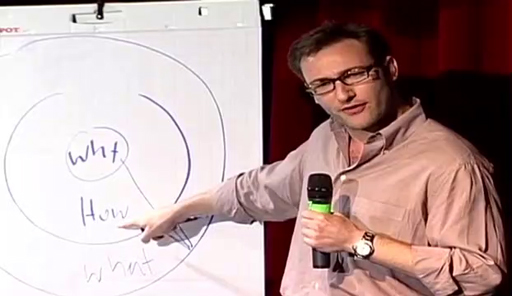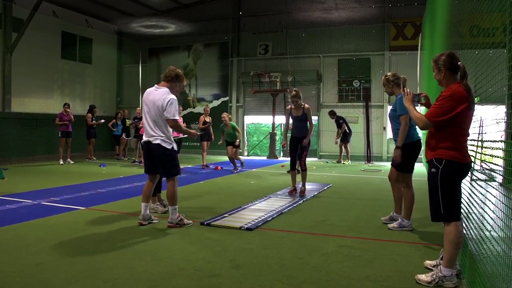4 Deeper questions: from the inside out
This section is, for many, a central part of developing coaches. In Session 1 you explored how part of the process of coach learning and development is to help make implicit values and beliefs explicit, and therefore open to reflection and discussion. Deeper questions, delving closer to a coach’s core beliefs, can help surface these.

Simon Sinek is a leadership and management author. He argues that, to be effective, some of the important questions organisations and people should be asking centre around purpose and beliefs. For coach developers this would mean asking questions such as: What is the purpose of your coaching? What are you trying to achieve? What are your coaching beliefs? What do you believe is meant by good coaching practice and why do you believe this? In the next activity you will pursue these ideas further.
Activity 4 Simon Sinek and understanding ‘why’
In Video 4, Sinek explains his ideas with reference to Apple, the digital business. While watching think about how this might transfer to coaches explaining and understanding their coaching practice.

Transcript: Video 4
Discussion
In coach learning and development, you are trying to help coaches understand and articulate their purpose and the influences that make them act in the way they do. You are trying to tease out why they believe what they believe and how this informs their decisions and behaviours and underpins how they coach and what they coach. Probing and asking these kinds of question may well help coaches become more self-aware. In addition, if you start to communicate in Sinek’s terms ‘from the inside out’ you may be able to influence changes in behaviour with the coaches you work with.
This style of deeper questioning requires a trusting and open relationship since it will take time for people to reveal their inner motivations. It is not easy. You can’t just jump in with this type of questioning. The following activity shows some of the bite-sized responses you may encounter and how more might be drawn out of such initial responses.
Activity 5 Coaches explain their approach
When coaches talk about what drives them and what is important to them, it is most accurately described as their ‘coaching ideology’. Yet the literature often calls this their ‘coaching philosophy’ (Lyle and Cushion, 2016). This latter term is an extremely ambiguous which is why it has not been used so far in this course. However, in Video 5 you will see how three coaches – Sara, Helen and Brett – attempt to respond to a ‘What is your coaching philosophy?’ question.
How would you summarise each coach’s stated approach to coaching? What further questions would you like to ask them?

Discussion
Sara – Sara mainly refers to ‘athlete engagement’ and the ‘efficiency and quality’ of training. Further questions might investigate what she means by engagement and how she knows the extent to which an athlete is engaged. Further exploratory questions might progress on to focus on observations of her coaching practice compared to her intentions of ‘efficiency and quality’.
Helen – Helen describes creating enthusiasm and encouraging an active lifestyle habit among young people. She also stated developing confidence and self-esteem as further aims. Additional questions might be: ‘Tell us how you think your approach has changed over time?’ and ‘How do PE sessions influence lifelong habits?’, or similar.
Brett – Brett makes three points: athlete enjoyment, allowing an athlete to choose their level of attainment, and the coach as role model. Subsequent questions might probe how he uses goal setting with athletes and any beliefs about how athlete enjoyment factors vary between different age groups.
By exploring, through the effective use of questions, what coaches state as their core guiding principles and then revisiting these ambitions in subsequent session observations, you may be able to gradually build a richer picture. The skill for coach developers is to see how far a coach’s stated principles are put into action within their coaching practices and behaviours.
